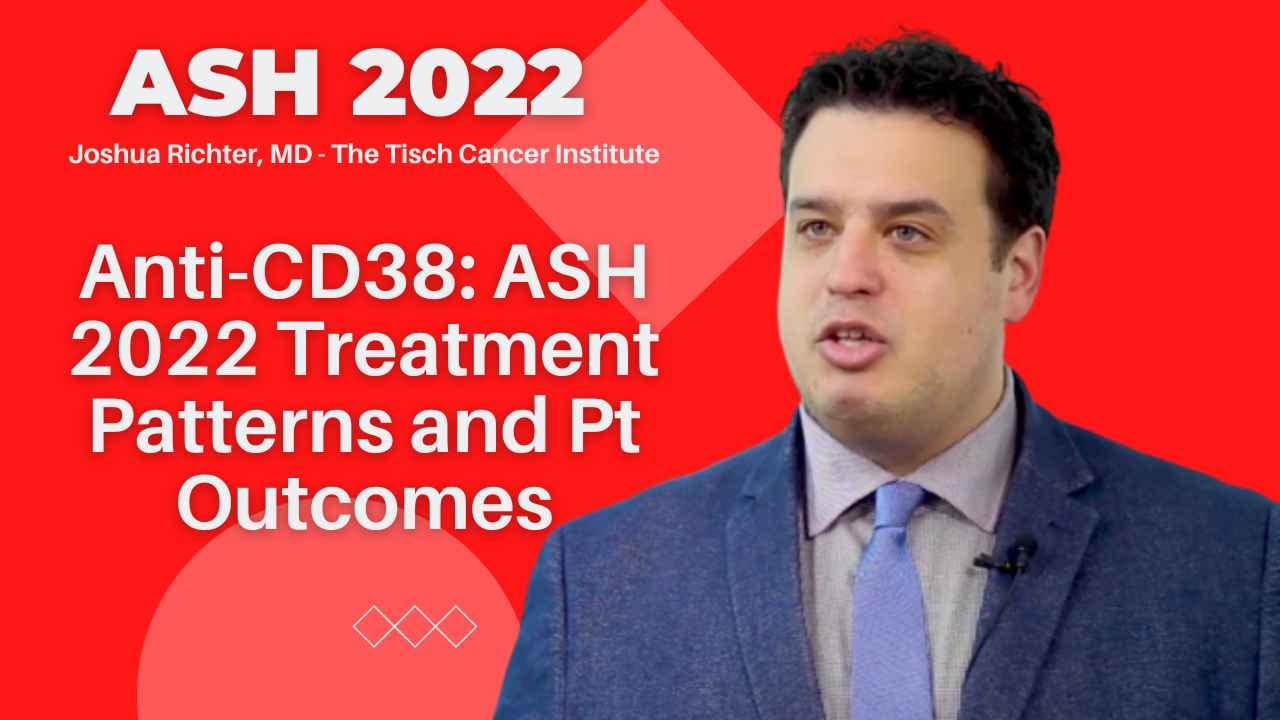
Anti-CD38: ASH 2022 Joshua Richter Treatment Patterns and Pt Outcomes
By Joshua Richter, MD
Enduring Responses After One Year of Fixed Duration Cevostamab Therapy in Patients With Relapsed and Refractory Multiple Myeloma: Early Experience From a Phase One Study was the title of the study we presented at this year's ASH (American Society of Hematology) meeting.
Now, bispecific antibodies are an interesting new sector in myeloma, and with the recent approval of Teclistamab and the current filing of Talquetamab, we understand that they will be a vital element of how we manage relapsed and resistant myeloma. However, the majority of current therapeutic techniques including biospecifics include treatment until progression or intolerance.
And this may necessitate years of continued treatment, putting patients at an elevated risk for infection. The fact that we gave patients Cevostamab, a bispecific FcRH5xCD3 antibody, for a defined duration is one of the truly remarkable aspects of this trial. Patients got 17 cycles of medication, which, considering that the medicine is administered every three weeks, amounted to nearly one year of treatment.
At that moment, regardless of their current condition, patients were halted from therapy and observed. At the time of the data cutoff, there have been 18 patients who have been observed after 17 cycles of treatment cessation. And again, they are not receiving any treatment, which is relatively uncommon in the field of relapse refractory myeloma.
Currently, 14 of 18 patients are in remission. Some patients beyond 6 months, some beyond 12 months, and everyone in strict CR (sCR) or more. At the time of completion of the 17 cycles, no progress has been made. The hope is that this will significantly influence how biospecifics will be used to treat myeloma in the future.
Watch and Share the Video Here: https://oncologytube.com/v/41729
Read and Share the Article Here: https://oncologytube.com/v/41730
Listen and Share the Audio Podcast Here: https://oncologytube.com/v/41731

